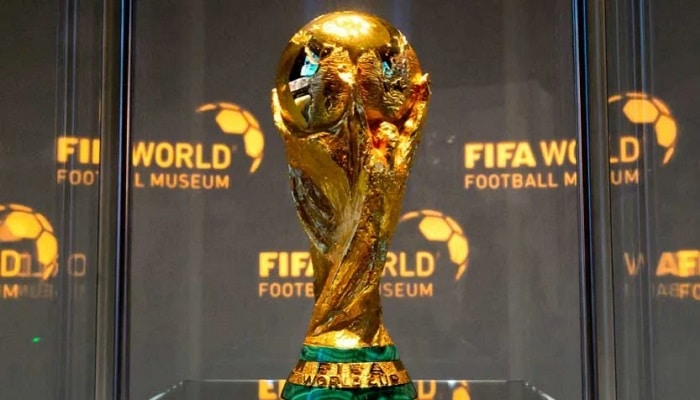The world cup is an event that attracts millions of people every four years. But after all, where did this popular event come from? In this article, we're going to explore the history of the world cup and find out how it became what it is today!
The History of the World Cup
The history of the world cup is quite interesting. It all started in 1904, when the president of Uruguay, José Batlle y Ordóñez, had the idea of creating a world football championship. The idea was to promote the sport in Uruguay and also in Latin America.
Batlle y Ordóñez invited the President of Chile, Pedro Montt, to participate in the tournament and together they sent a telegram to the President of the International Football Federation (FIFA), Robert Guerin, asking him to consider holding the event. Guerin liked the idea and went to work organizing the tournament.
The first Football World Cup was held in Uruguay in 1930 and had 13 participating countries: Argentina, Bolivia, Brazil, Chile, Paraguay, Peru, Uruguay and Venezuela (the other six countries were: Germany, United States, France, Mexico, Yugoslavia and Rumania).
Uruguay won the first edition of the tournament, beating Argentina in the final 4-2.
Since then, the world cup has been held every four years (with a few exceptions due to World War II). From 1950 on, the number of participating countries increased and, currently, there are 32 teams disputing the world title.
The world cup is one of the most important sporting events in the world and brings together millions of people across the planet.
The first world championship
The first football world championship took place in Uruguay, in 1930. In all, 13 countries participated in the competition and the final was won by Uruguay itself.
Cups in the Americas
The world cup is an international football tournament that takes place every four years. The first championship was held in Uruguay, in 1930, and since then the event has been held in different countries at each edition. South America had the honor of hosting the cup for the first time in 1930, and since then, the American continent has hosted another 9 editions of the competition (including the two that were held in Brazil, in 2014 and 2018).
In total, 12 American countries have already hosted the World Cup: Argentina, Bolivia, Brazil, Chile, Colombia, Ecuador, Mexico, Peru, Uruguay, Venezuela and the United States. Among them, Brazil is the country that most often hosted the event, followed by the United States and Mexico.
Around Europe
The history of the World Cup is, in fact, one of successive restarts. The first edition of the tournament, held in 1930, was an initiative of Uruguay, which had been Olympic champion in 1928. The idea was to promote football as an international sport and thus attract more tourists. The plan worked: 16 countries participated in the first World Cup.
After the Second World War, the European continent experienced a long period of political and economic instability. As a result, the World Cup had its importance reduced and was held only twice in Europe in 1950 (Italy) and 1958 (Sweden). In the following years, the tournament was only held on the continent again in 1974 (Germany), when the economy was already more stabilized. Since then, it has only been outside the continent once, in 1986 (Mexico).
Since its first edition, the World Cup has had the following countries as great champions: Brazil (5), Germany (4), Argentina and Uruguay (2) and Italy and France (1). Although the tournament has expanded to the entire world, these nations are the ones that have won the most international titles.
The World Cup in Brazil
Since the first edition of the world cup, in 1930, the tournament has not been held just once. Brazil has great importance in the cup, since it has hosted the same number of times and is still the biggest champion.
In 2014 the world cup was held in Brazil. There were 12 cities to host the matches, they are: Belo Horizonte, Brasília, Cuiabá, Curitiba, Fortaleza, Manaus, Natal, Porto Alegre, Recife, Rio de Janeiro and Salvador. The stadium that hosted the final of the tournament was Maracanã (RJ).
The 2014 world cup promised many surprises for lovers of this wonderful sport!
Conclusion
The world cup is one of the most popular sporting events in the world. It is a symbol of patriotism and competition, where the whole nation comes together to cheer for its players in search of a title.
The World Cup is also a moment where history is made. Athletes, countries and fans from every continent flock to watch great matches, and those on TV or in the stadium can witness some of the most moving moments in the history of sport.
With each new edition, the world cup continues to grow in popularity and importance. It is an event that deserves to be watched live by football lovers around the world.
After all, did you like to know more about? Tell us here in the comments and
don't forget to share with your friends and family.
Want to know more about it? Enter our blog and find more
information!


